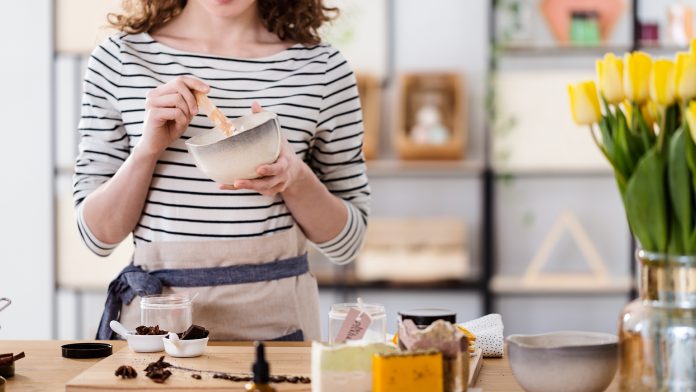
Have you found that you want to be more on board with making ethical homemade products? And that social media is great for the tutorials? Well, discover why researchers are advising against this.
Social media and other online tools have changed the way people seek and share health information. Recent consumer interest in natural, organic, and ethically made personal care products has led to an increase of shared recipes for homemade products including sunscreen. A new study conducted by researchers at the Center for Injury Research and Policy at Nationwide Children’s Hospital and the Brooks College of Health at University of North Florida examined how homemade sunscreens were portrayed on the social media platform Pinterest.
Pinning down the problem
Published in Health Communication, research found that nearly 95% pins, or bookmarks, for homemade sunscreen positively portrayed the effectiveness of homemade sunscreens and 68% recommended recipes for homemade sunscreens that offered insufficient UV radiation protection.
Sun Protection Factor (SPF) claims were made in a third of pins with a range of SPF 2 to SPF 50. This is concerning because the ingredients recommended in homemade sunscreen pins offer minimal scientifically proven broad-spectrum protection from UV radiation yet are widely shared and promoted as safe alternatives to commercial sunscreens on Pinterest.
The average number of saves for a pin was 808, with one pin being saved more than 21,700 times.
“The internet is a great place for families to go to for recipe inspiration and arts and crafts projects, but not necessarily for making their own safety-related things,” said Lara McKenzie, PhD, co-author of this study and principal investigator in the Center for Injury Research and Policy at Nationwide Children’s.
“Homemade sunscreen products are risky because they are not regulated or tested for efficacy like commercial sunscreens. When you make it yourself, you don’t know if it’s safe or effective.”
With rising skin cancer rates, the use of effective broadband sunscreen is critical to protect the skin from UV radiation and reduce incidence of skin cancer.
The efficacy of homemade products and remedies
It is important for viewers to understand that just because you make it yourself or something is labelled as natural or has fewer ingredients doesn’t necessarily mean that it is safer. The best sunscreen is one that can be regularly applied and stay on the skin without causing irritation or other side effects, which usually depend on the child and the activity.
It often takes a trial of several sunscreens before finding the one that does the job best for your family, even if that means everyone uses a different type of product.
























